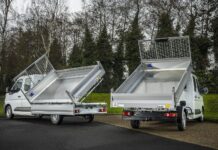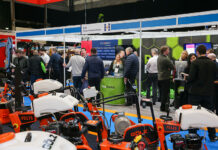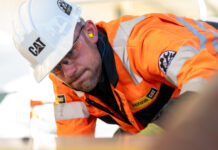ANGLE Park Sand and Gravel has added two more Volvo machines to its operations in Fife.
Based in Cupar, family-run Angle Park Sand and Gravel has produced sand and aggregates since 1961. Led by father and son team, Ian and Peter Cuthbert, the business has two sites in Melville Gates and Mountcastle.
Peter Cuthbert said, “We’ve been working the Melville site since we started up, and have owned and operated Volvo equipment pretty much from the start. We moved into the adjacent Mountcastle site six years ago and, as the development of the site has progressed, we saw the need for a large loading shovel to take care of our production requirements, purchasing our first L150H last year. There has been a significant increase in demand over the last twelve months, which has prompted the need for a second machine in this application.”
As well as the second Volvo L150H loading shovel, the firm has also bought an L120H, which arrived to replace a 14-year-old L120E.
“We’ve had great service out of the old machine, which clocked up 28,500 hours loading out road wagons and keeping the hoppers busy,” Peter added. “Admittedly, we did have to replace the engine at 24,500 hours, and we cannot really complain about that, but it made us stop and think about making the decision to move it on in favour of a new machine, and SMT GB struck a competitive deal for the L120H.
“Similarly, we’ve been really pleased with the L150H we purchased last year for the Mountcastle operation. It has been fully deployed digging at the face, feeding the plant and loading out road going wagons. But the reality is, we needed a second unit to meet production demands.
“As before, we specified the machine with boom suspension for long load and carry work, but also a larger capacity bucket coupled to the Volvo Load Assist feature, which has really paid dividends towards the machine’s efficiency onsite. There is less than 1% discrepancy between what the machine is loading to what is weighed on the weigh bridge. This saves significant time when loading vehicles, without the need for them to top up or discard excess loads, which makes our production flow faster.”












